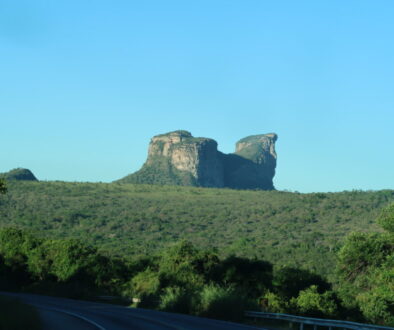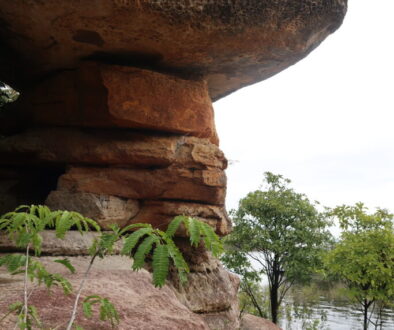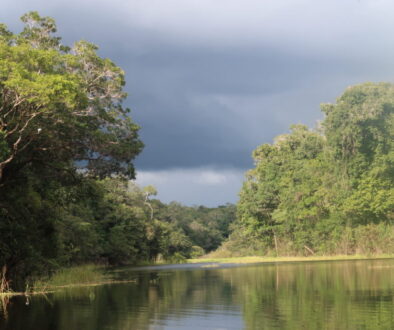Via Juodkrante towards Latvia
The Lithuanian saga says about amber: The stones are tears of a girl, who’s husband was killed by her brothers because they didn’t belief her sister could be happy in her marriage on the bodem of the sea.
Another tale is: amber arrives from a demolished palace of the sea god by the god of fire, because he was jealous about the girl the sea god had married.
The Latvian saga says: God had made 2 suns, but decided to keep only one. The other one, he crashed in the sea.

In Juodkrante, we took the Fairy tale trail to the Wichhill. Several years ago, during a come together of wood carvers, they started to make impressive plastics, which tell the stories of Lithuanian fairy tales. The plastic are put along the trail. There are some older once, some new once, some had to be replaced because the wood couldn’t stand the climate.

With the ferry we came back in Klaipeda, had a quick lunch and reached for Liepaja. Not before paying Ännchen von Tharau a visit. Remembered that song, its lines, its romance very well: my mother used to play it at the piano, my grandmother sang it to us.

Almost mist crossing the boarder to Latvia, somewhere in the woods, seems not much more like a bus stop, just before the next village.
Liepaja – Latvia
We just slept one night at the 5 star hotel. We arrived late in the afternoon, had a nice dinner together in their very restaurant.

Trying to find the beach, we walked along the waterway, a trade channel, assuming it will reach open water at some point. But all we found were old and vanished or restored industrial buildings. In our second attempt, we got luckier. Walked the alley to the beach, watched the sunset. And at our way back home we came along a college where a fanfare was practicing. Listened to the music and watching the repeating walking patterns. Nice surprise, just straying the streets.

Liepaja is a city still to recover from old times. It was an industrial city, still is, with a lot of nice architecture, which – for sure – needs some restoring: Art-nouveau, traditional wooden houses with amazing wood carvings, old storage buildings along the channels and also red-brick buildings with white ornaments.

Ljepaja is the city where the wind is born, as a song says. The touristic walk is thus marked with bronze notes in the pavement. Ljepaja has from al a bit… wooden houses, marine life, Jugendstil, the biggest mechanic organ in Europe. Would have liked to hear that!



